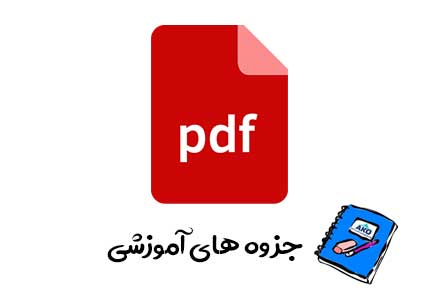به این نوشته امتیاز دهید
در این بخش برای شما عزیزان تمام واژگان درس 2 زبان انگلیسی یازدهم را به همراه معنی، مثال و مترادف قرار داده ایم. در قسمت قبل واژگان و لغات درس 1 یازدهم را نیز برای شما قرار داده بودیم.
| Word | Definition | Example | Meaning |
| education n. /ˌedʒuˈkeɪʃn/ | teaching, training and learning, especially in schools or colleges | I hope to continue my education after high school. | آموزش |
| higher education n. /ˌhaɪər edʒuˈkeɪʃn/ | (abbreviation HE) education or learning at a college or university | Will she go on to higher education? | آموزش عالی |
| laughter n. /ˈlæftər/ | the act or sound of laughing | People roared with laughter during the show. | خنده |
| check v. /tʃek/ | US : to mark (something) with a check (✓) to show that it has been done, approved, etc. SYN tick British English | You should check each item on the exam paper. | نشان گذاردن |
| jog v. /dʒɑːɡ/ | (also go jogging) to run slowly especially for exercise | She decided to go jogging each morning. | آهسته دویدن |
| jog n. /dʒɑːɡ/ | a slow run, especially one done for physical exercise | I like to go for a jog after work. | دویدن آهسته |
| hang out with | to spend time relaxing, talking, or doing something with (sb) : | He spent a few of days hanging out with his old friends. | پرسه زدن، وقت گذراندن |
| climb v. /klaɪm/ | to go up something towards the top | Hillary and Tenzing were the first men to climb Mount Everest. | بالا رفتن |
| Mount n. /maʊnt/ | (abbreviation Mt) used as part of the name of a mountain | Mount/Mt Everest | کوه |
| candy n. /ˈkændi/ | (pl. candies) (North American English) sweet food made of sugar and/or chocolate, eaten between meals SYN sweet | a box/bowl/piece of candy | آب نبات |
| carrot n. /ˈkærət/ | a long pointed orange root vegetable | a kilo of carrots | هویج |
| quince n. /kwɪns/ | a hard yellow fruit like a large apple, used in cooking | She bought a jar of quince jam. | به، درخت به |
| rarely adv. /ˈrerli/ | not very often OPP frequently | I have rarely seen someone eat so much. | به ندرت |
| couch potato n. /ˈkaʊtʃ pəteɪtoʊ/ | (informal, disapproving) a person who spends a lot of time sitting and watching television | A lot of kids today are overweight couch potatoes. | معتاد تلویزیون |
| gain v. /ɡeɪn/ | to increase in weight, speed, height, or value | Carrie’s gained a lot of weight recently. | افزایش یافتن |
| depressed adj. /dɪˈprest/ | very sad and without hope | She’s terribly depressed about losing her job. | افسرده |
| depression n. /dɪˈpreʃn/ | a feeling of sadness that makes you think there is no hope for the future | She suffered from depression for a while after losing her job. | افسردگی |
| you win | (informal) used to agree to what somebody wants after you have failed to make them do something else | OK, you win, I’ll admit I was wrong. | باشه، حق با شماست |
| nope exclamation /noʊp/ | (informal) used to say ‘no’ | ‘Have you seen my pen?’ ‘Nope.’ | نه |
| Word | Definition | Example | Meaning |
| sportsperson n. /ˈspɔːrtspɜːrsn/ | (pl. sports-persons, sportspeople) (especially British English) a person who plays a lot of sport, especially as a professional SYN athlete | ورزشکار | |
| diet n. /ˈdaɪət/ | 1. the food that you eat and drink regularly 2. a way of eating in which you only eat certain foods, in order to lose weight, or to improve your health | a diet rich in vitamins and minerals I decided to go on a diet before my holiday. | رژیم غذایی |
| heartbeat n. /ˈhɑːrtbiːt/ | the movement or sound of the heart as it sends blood around the body | The patient had a rapid heartbeat. | ضربان قلب |
| blood pressure n. /ˈblʌd preʃər/ | the force with which blood moves through a person’s body | She has a blood pressure of 120/80. | فشار خون |
| measure v. /ˈmeʒər/ | to find out the size, length, or amount of | He used a ruler to measure a piece of paper. | اندازه گرفتن |
| heart attack n. /ˈhɑːrt ətæk/ | a sudden serious medical condition in which the heart stops working normally, sometimes causing death | You’re going to give me a heart attack one of these days! | حمله قلبی |
| serving n. /ˈsɜːrvɪŋ/ | an amount of food that is enough for one person SYN helping | The pyramid recommends six to eleven servings daily. | پرس غذا |
| harmful adj. /ˈhɑːrmfl/ | causing damage or injury to somebody/something | the harmful effects of smoking | مضر |
| habit n. /ˈhæbɪt/ | a thing that you do often and almost without thinking | You need to change your eating habits. | عادت |
| addict n. /ˈædɪkt/ | 1. someone who is unable to stop taking drugs 2. a person who is very interested in sth. and spends a lot of their free time on it | 1. someone who is unable to stop taking drugs 2. a person who is very interested in sth. and spends a lot of their free time on it | معتاد |
| addiction n. /əˈdɪkʃn/ | 1. the need to take a harmful drug regularly, without being able to stop 2. an unusually great interest in something or a need to do or have something | alcohol addiction She has an addiction to mystery novels. | اعتیاد |
| physical adj. /ˈfɪzɪkl/ | relating to the body of a person instead of the mind | He is in good physical condition. [=he is in good shape.] | بدنی |
| calm adj. /kɑːm/ | not angry, nervous, excited, etc. | Please stay in your seats and keep calm. | آرام |
| manner n. /ˈmænər/ | the way that somebody behaves towards other people | the way that somebody behaves towards other people | رفتار |
| balanced adj. /ˈbælənst/ | with all parts existing in correct amounts OPP unbalanced | a balanced diet [=a diet having all the kinds of food needed to be healthy] | متوازن |
| contain v. /kənˈteɪn/ | to have or include | This drink doesn’t contain any alcohol. | شامل شدن |
| recent adj. /ˈriːsnt/ | that happened or began only a short time ago | There have been many changes in recent years. | اخیر، تازه |
| emotional adj. /ɪˈmoʊʃənl/ | relating to your feelings or how you control them | Grandpa gets very emotional when he talks about the war. | عاطفی |
| prevent v. /prɪˈvent/ | to stop sb from doing sth; to stop sth from happening | Can exercise and a healthy diet prevent heart disease? | جلوگیری کردن |
| Word | Definition | Example | Meaning |
| relationship n. /rɪˈleɪʃnʃɪp/ | the way in which two people or two groups feel about each other and behave towards each other | I have quite a good relationship with my parents. | ارتباط |
| lifestyle n. /ˈlaɪfstaɪl/ | the way in which a person or a group of people lives and works | A healthy lifestyle includes taking exercise and not smoking. | سبک زندگی |
| certain adj. /ˈsɜːrtn/ | used to talk about a particular person, thing, group of things etc. without naming them or describing them exactly | For certain personal reasons I shall not be able to attend the meeting. | معین، مقرر |
| effective adj. /ɪˈfektɪv/ | successful, and working in the way that was intended OPP ineffective | drugs that are effective against cancer | موثر |
| decrease v. /dɪˈkriːs/ | to become or make sth become smaller in size, number, etc. OPP increase | The price of rice has decreased by 5%. | کاهش دادن |
| take away (sb or sth) | to cause (sb/sth) to go away, to no longer exist, to no longer be held, etc. | He was trying to take the ball away from the dog. | دور کردن |
| above all | most important of all; especially | Above all, we must consider what is best for the children. | روی هم رفته |
| skim v. /skɪm/ | to look over or read sth quickly especially to find the main facts or ideas in it | She only skimmed the passage. | بطور سطحی خواندن |
| identify v. /aɪˈdentɪfaɪ/ | to find or discover somebody/something | Jaime successfully identified all 45 different species of animals. | شناسایی کردن |
| predict v. /prɪˈdɪkt/ | to say that something will happen in the future SYN forecast | It is impossible to predict what will happen in the future. | پیشگویی کردن |
| topic n. /ˈtɑːpɪk/ | a subject that you talk, write or learn about | The main topic of conversation was Tom’s new job. | عنوان، موضوع |
| discuss v. /dɪˈskʌs/ | to talk about something with another person or a group in order to exchange ideas or decide something | I suggested going out for a drink to discuss the problem. | بحث کردن |
| prefix n. /ˈpriːfɪks/ | (grammar) a letter or group of letters added to the beginning of a word to change its meaning, such as un- in unhappy | پیشوند | |
| suffix n. /ˈsʌfɪks/ | (grammar) a letter or group of letters added to the end of a word to make another word, such as -ly in quickly | پسوند | |
| rewrite n. /ˈriːraɪt/ | to write (something) again SYN revise | I had to rewrite the computer program. | بازنویسی |
| re- /riː/ prefix | again | They’re rebroadcasting the play. | دوباره |
| unimportant adj. /ˌʌnɪmˈpɔːrtnt/ | not important SYN trivial | She played a relatively unimportant role in the movie. | بی اهمیت |
| incorrect adj. /ˌɪnkəˈrekt/ | not correct or true | The information you gave us was incorrect. | نادرست |
| dislike v. /dɪsˈlaɪk/ | to not like somebody/something OPP like | Most people dislike going to the dentist. | دوست نداشتن |
| Word | Definition | Example | Meaning |
| middle n. /ˈmɪdl/ | the middle between the beginning and the end | Jo was standing in the middle of the room. | وسط، بین |
| happiness n. /ˈhæpinəs/ | the state of being happy | At last, she found true happiness with a man she loved. | خوشحالی |
| disagree v. /ˌdɪsəˈɡriː/ | to have a different opinion from someone else OPP agree | She disagrees with him on almost every subject. | موافق نبودن |
| unsafe adj. /ʌnˈseɪf/ | not safe; dangerous | The water is unsafe for drinking. | ناامن |
| reality n. /riˈæləti/ | (pl. realities) what actually happens or is true, not what is imagined or thought | Will time travel ever become a reality? | واقعیت |
| midterm adj. /ˌmɪdˈtɜːrm/ | a.an examination given at the middle of a school term b. the middle of a school term | a midterm exam/test He dropped the course before midterm. | میان ترم |
| incomplete adj. /ˌɪnkəmˈpliːt | not finished : not complete OPP complete | The building was left incomplete because of the war. | ناتمام، ناقص |
| disorder n. /dɪsˈɔːrdər/ | a physical or mental condition that is not normal or healthy OPP order | a blood disorder Eating disorders can be very difficult to treat. | بی نظمی، اختلال |
| scanner n. /ˈskænər/ | a device which copies pictures and documents | a document scanner a photo scanner | اسکنر، پوینده |
| replay v. /ˌriːˈpleɪ/ | to play again a video, music recording or video game | Channel 5 will replay the game’s highlights at midnight. | بازپخش |
| homeless adj. /ˈhoʊmləs/ | having no home | Three hundred people were left homeless by the earthquake. | بی خانمان |
| invitation n. /ˌɪnvɪˈteɪʃn/ | a spoken or written request to somebody to do something or to go somewhere | Have you received your invitation to the party? | دعوت |
| influence v. /ˈɪnfluəns/ | to have an effect on the way that somebody behaves or thinks | Her parents tried to influence her in her choice of university. | تاثیر گذاشتن نفوذ کردن |
| reason n. /ˈriːzn/ | why something happens, or why someone does something | Give me one good reason why I should believe you. | دلیل |
| properly adv. /ˈprɑːpərli/ | in a way that is acceptable or suitable | When will these kids learn to behave properly? | به درستی |
| quit v. /kwɪt/ | (past tense and past participle quit, also quitted British English) to stop doing something | I’ve quit smoking. | ترک کردن |
| event n. /ɪˈvent/ | 1. a thing that happens, especially something important 2. a planned social activity | She likes to arrive at social events early. | رویداد، حادثه، اتفاق |
| rethink v. /ˌriːˈθɪŋk/ | to think again about an idea, a course of action, etc. SYN reconsider | to rethink a plan | تجدید نظر کردن |
| medical adj. /ˈmedɪkl/ | relating to medicine and the treatment of disease or injury | He has a dangerous medical condition. | پزشکی |
| Word | Definition | Example | Meaning |
| anti–prefix /ˌænˌtaɪ//ˌænti/ | acting to prevent something | antifreeze (=a liquid added to a car’s engine to prevent freezing) antibacterial | مخالف، علیه، ضد |
| drug n. /drʌɡ/ | a substance that is used as a medicine | He’s taking drugs for depression. | دارو |
| cure v. /kjʊr/ | to make a person or an animal healthy again after an illness | Will you be able to cure him, Doctor? | درمان کردن |
| cure n. /kjʊr/ | a medicine or medical treatment that makes an illness go away | the search for a cure for cancer | معالجه، درمان |
| stage n. /steɪdʒ/ | a particular period in the development of something | This technology is still in its early stages. | عصر، دوره |
| produce v. /prəˈduːs/ | 1. to make (something) 2. if someone produces a film or play, they find the money for it and control the way it is made | Thousands of cars are produced here each year. He produced and directed the movie. | تولید کردن |
| retire v. /rɪˈtaɪər/ | to stop a job because you have reached a certain age | She has decided to retire from international tennis. | بازنشسته شدن |
| fire service n. /ˈfaɪər sɜːrvɪs/ | the organization that works to prevent fires and stop them from burning SYN fire department American English fire brigade British English | The fire service did their best to help people. | سازمان آتش نشانی |
| exciting adj. /ɪkˈsaɪtɪŋ/ | causing great interest or excitement making you feel excited | He found it very exciting to ride a horse at such speed. | هیجان انگیز |
| yet adv. /jet/ | until now : so far | I haven’t received a letter from him yet. | تا حالا، هنوز |
| since preposition /sɪns/ | from a particular time or event in the past until the present, or in that period of time | I haven’t played Ping-Pong since I left university. | از، از وقتی که |
| spend v. /spend/ | 1. to use (money) to pay for something 2. to use time for a particular purpose; to pass time | She spent $100 on a new dress. I’ve spent years trying to learn Japanese. | خرج کردن، صرف کردن |
| try v. /traɪ/ | to do or use (something) in order to see if it works or will be successful | Have you tried this new coffee? It’s very good. | امتحان کردن |
| series n. /ˈsɪriːz/ | (pl. series) a set of regularly presented television shows | a popular television series | سریال تلویزیونی |
| take part (in sth) | to be involved in something SYN participate | Nearly 500 teams took part in the competition. | شرکت کردن |
| watch out phrasal v. | (informal) used to tell someone to be careful | Watch out! There’s a car coming! | بپا! مواظب باش! |
| go away phrasal v. | to leave a person or place | Go away and leave me alone! | ترک کردن، رفتن |
| get away phrasal v. | to go away from a place | I won’t be able to get away from the office before 7. | دور شدن، رفتن |
| turn around phrasal v. | (also turn round British English) to change position or direction so as to face the other way | I turned my chair round to face the fire | چرخاندن |
| Word | Definition | Example | Meaning |
| in that case | if that happens or has happened; if that is the situation | “I’ll be home late tonight.” “Well, in that case, I won’t cook dinner.” | در این صورت |
| cycling n. /ˈsaɪklɪŋ/ | the sport or activity of riding a bicycle | to go cycling | دوچرخه سواری |
| gerund n. /ˈdʒerənd/ | a noun in the form of the present participle of a verb (that is, ending in -ing) for example travelling in the sentence I preferred travelling alone. | اسم مصدر | |
| notice n. /ˈnoʊtɪs/ | a board or sign or a sheet of paper giving information, an instruction or a warning | a notice saying ‘Keep off the Grass’ | آگهی، اخطار |
| keep on phrasal v. | to continue doing something, or to do something many times | The rain kept on all night. | ادامه دادن |
| recreational adj. /ˌrekriˈeɪʃənl/ | done for enjoyment | recreational activities/facilities | تفریحی |
| recreation n. /ˌriːkriˈeɪʃn/ | making something that existed in the past exist again | The writer attempts a recreation of the sights and sounds of his childhood. | خلق مجدد |
| recreation n. /ˌrekriˈeɪʃən/ | an activity that you do for pleasure or amusement | His only recreation is watching football. | تفریح، سرگرمی |
| forbidden adj. /fərˈbɪdn/ | not allowed | Photography is absolutely forbidden in the museum. | ممنوع |
| biking n. /ˈbaɪkɪŋ/ | the sport or activity of riding a bicycle or motorcycle | We’re planning to go biking tomorrow. | دوچرخه سواری |
| sailing n. /ˈseɪlɪŋ/ | the sport or activity of traveling on water in a sailboat | They’re going sailing next week. | کشتیرانی، سفر دریایی |
| sail n. /seɪl/ | a large piece of strong cloth fixed onto a boat, so that the wind will push the boat along | raising and lowering the ship’s sails | بادبان |
| confuse v. /kənˈfjuːz/ | to mistake (one person or thing) for another SYN mix up | I sometimes confuse Jane with her sister. | گیج شدن، اشتباه کردن |
| hiking n. /ˈhaɪkɪŋ/ | the activity of taking long walks in the mountains or country | We’re going to do some hiking this summer. | پیاده روی |
| rush v. /rʌʃ/ | to move or do something very quickly or in a way that shows you are in a hurry SYN hurry | We’ve got plenty of time; there’s no need to rush. | عجله کردن |
| taste n. /teɪst/ | what a person likes or prefers | The color and style is a matter of personal taste. | سلیقه |
| cause v. /kɔːz/ | to make something happen, especially something bad | Do they know what caused the fire? | باعث شدن، سبب شدن |
| risk v. /rɪsk/ | to put (something) in a situation in which it could be lost, damaged, etc. | He risked his life to save her. | بخطر انداختن |
| proportion n. /prəˈpɔːrʃn/ | a part or share of a whole | The proportion of regular smokers increases with age. | نسبت، مقدار |
| Word | Definition | Example | Meaning |
| enable v. /ɪˈneɪbl/ | to make it possible for somebody to do something SYN allow | The software enables you to create your own DVDs. | توانا ساختن، قادر ساختن |
| creative adj. /kriˈeɪtɪv/ | having the skill and ability to produce something new | She’s very creative—she writes poetry and paints. | خلاق |
| vacuum cleanern. /ˈvækjuəm kliːnər/ | a machine that cleans floors by sucking up dirt SYN Hoover British English | Use a vacuum cleaner to remove the dirt. | جارو برقی |
| as conj. /əz/,/æz/ | for the reason that SYN because | As you were out, I left a message. | به دلیل اینکه |
| miracle n. /ˈmɪrəkl/ | 1. a very amazing or unusual event, thing, or achievement 2. an unusual or wonderful event that is believed to be caused by the power of God | The bridge is a miracle of engineering. She believed that God had given her the power to work miracles. | چیز عجیب، معجزه |
| as well (as sb/sth) | in addition to somebody/something; too | They sell books as well as newspapers. | علاوه بر |
| nervous system n. /ˈnɜːrvəs sɪstəm/ | the system of all the nerves in the body | Smoking damages the nervous system. | دستگاه عصبی |
| headset n. /ˈhedset/ | a pair of headphones, especially one with a microphone attached to it | Students put on their headsets and listened to conversations. | گوشی، هدفن |
| various adj. /ˈveriəs/ , /ˈværiəs/ | several different SYN diverse | There are various ways of doing this. | گوناگون |
| in particular | especially or particularly | It was a good concert – I enjoyed the last song in particular. | مخصوصاً |
| socialize v. /ˈsoʊʃəlaɪz/ | to meet and spend time with people in a friendly way, in order to enjoy yourself SYN mix | I enjoy socializing with the other students. | معاشرت کردن |
| impatient adj. /ɪmˈpeɪʃnt/ | annoyed because of delays, someone else’s mistakes etc. OPP patient | Don’t be so impatient. I’m working as fast as I can. | بی صبر، بی حوصله |
| specialist n. /ˈspeʃəlɪst/ | a person who is an expert in a particular area of work or study SYN expert | a specialist in Japanese history | متخصص |
| avoid v. /əˈvɔɪd/ | to prevent something bad from happening | He tried hard to avoid accidents. | مانع شدن |
| limit v. /ˈlɪmɪt/ | to stop or prevent an increase in sth SYN restrict | a decision to limit imports of foreign cars | محدود کردن |
| regular adj. /ˈreɡjələr/ | happening or done very often happening or doing something very often OPP irregular | Exercise has become a regular part of my lifestyle. | منظم، مرتب، عادی، با قاعده |
| wellness n. /ˈwelnəs/ | (especially North American English) the state of being healthy | a wellness center/program | نیکی، سلامت |
| indirect adj. /ˌɪndəˈrekt/ , /ˌɪndaɪˈrekt/ | not directly caused by something OPP direct | Losing weight is an indirect result of smoking cigarettes. | غیر مستقیم |
| redo v. /ˌriːˈduː/ | to do something again | A whole day’s work had to be redone. | دوباره انجام دادن |
| Word | Definition | Example | Meaning |
| disable v. /dɪsˈeɪbl/ | 1. to make someone unable to use a part of their body properly 2. to cause (something) to be unable to work in the normal way | He was disabled in a car accident. disable a computer program | ناتوان ساختن، از کار انداختن |
| mineral n. /ˈmɪnərəl/ | a natural substance such as iron that is present in some foods and is important for good health | Fish is a rich source of vitamins and minerals. | ماده معدنی |
| dish n. /dɪʃ/ | food that is prepared in a particular way | She cooked us a delicious French dish with chicken and tomatoes. | خوراک، غذا |
| ahead adv. /əˈhed/ | in the future | We have some hard work ahead. | جلو، در آینده |
| press v. /pres/ | to make clothes smooth using a hot iron SYN iron | He pressed his shirt and pants. | اتو زدن |
| grocery n. /ˈɡroʊsəri/ | groceries [plural] food and other goods sold by a grocer or at a supermarket | She stopped to pick up some groceries for dinner. | خواربار |
| tire n. /ˈtaɪər/ | (British English tyre) a thick rubber ring that fits around the wheel of a car, bicycle etc | I had a flat tire and had to walk home. | لاستیک چرخ |
| mission n. /ˈmɪʃn/ | an important job that someone has been given to do | Our mission was to help the homeless. | ماموریت |
| asleep adj. /əˈsliːp/ | sleeping OPP awake | He was so tried that he fell asleep at his desk. | خواب، خوابیده |
| washing machine n. /ˈwɑːʃɪŋ məʃiːn/ | an electric machine for washing clothes | I ran a load of laundry through the washing machine. | ماشین لباس شویی |
| hearing n. /ˈhɪrɪŋ/ | the ability to hear | His hearing has gone in one ear. | شنوایی |
| worthy adj. /ˈwɜːrði/ | (worthier, worthiest) good and deserving respect, praise, or attention OPP unworthy | a teacher who is worthy of respect | شایسته، لایق |
| mind v. /maɪnd/ | used to make a polite request | Would you mind waiting outside? | لطف کردن |
| shut v. /ʃʌt/ | to close something, or to become closed SYN close | She walked quickly in and shut the door behind her. | بستن |
| couch n. /kaʊtʃ/ | a long comfortable seat for two or more people to sit on SYN sofa, settee | The little child fell asleep on the couch. | مبل |
| emotion n. /ɪˈmoʊʃn/ | a strong human feeling such as love, hate, or anger | Her voice was full of emotion. | احساسات |
| device n. /dɪˈvaɪs/ | a machine or tool that does a special job SYN gadget | The company makes devices to detect carbon monoxide. | دستگاه |













